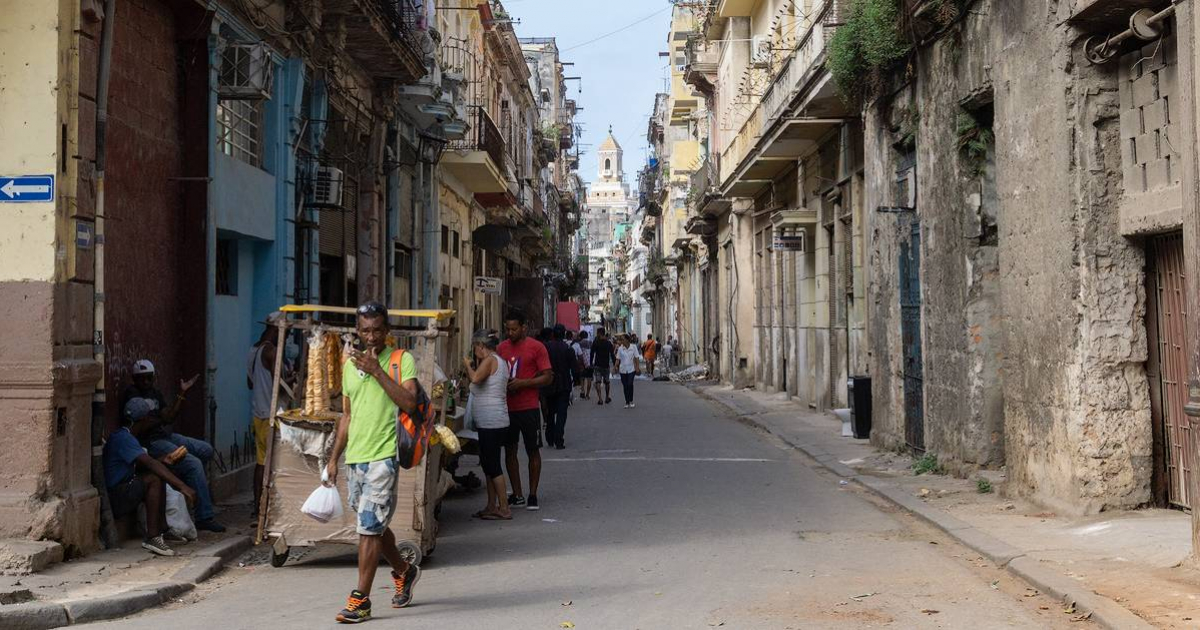
A Cuban woman made a moving reflection on the harsh reality that exists in the country and her message has gone viral because it warns the regime ofsocial cost that the new economic policies are leaving.
The journalistLiudmila Rock Blacksmith shared on his Facebook profile an intimate message, inspired by his own family history, that reflects the uncertainty that exists in Cuba today.
The text was published under the title"Survive". It accumulates thousands of interactions and comments on social networks, where people highlight the complexity of this historical moment for Cubans. The State abandoned the most vulnerable and the country is experiencing "every man for himself."
About Living
My great-grandmother came to see the sea when she was already an octogenarian woman. He never needed him because he never imagined what he was like. He didn't need the breeze or the waves or the smell of saltpeter. Her life was raising children and animals, helping her husband move the farm forward, watching over the team of oxen, driving the goats to the corral... Working.
She did not know electric light until a long time after she had children. Studying was not his dream. His priority was to survive and that is how he survived almost his entire life. I have never asked him if he ever wanted to live better.
Survive It is the icon today of our resistance, but the word does not go beyond "living with limited means or in adverse conditions"; whileresist is, "tolerate, endure or suffer."
When there is an infection, the body focuses on fighting it,resist to survive. "Forget" certain other priorities.
Society is also a living organism, which feels and responds to stimuli. For many it is difficult to create or dream (not "invent") under a situation that requires first living to tell the tale.
Survive It is going through life with the minimum, doing it daily, without much project or plan for the future. And there are things, like the sea, that perhaps seem dispensable. Traveling by plane, for example.
Anyone who has not shortened distances in a short time, or is afraid of heights, will say that why worry because the price of a ticket for a domestic flight is going to exceed four thousand pesos. Only until it is essential, for health reasons, for an important family situation, or for logical convenience, if we have not forgotten it. The common citizen cannot feel that traveling by plane in Cuba will, very soon, be a utopia.
But if we don't want to fly, fine:let's put our feet on the ground.
Does anyone dare to calculate how much it costs today to travel the distance to a workplace in a large city, or from one town to another, month after month? How much will it cost very soon?
Will the salary be enough just to go to work? Has anyone stopped to think about where people get the money to "survive" after their official income has been exhausted?
There are those who can use teleworking, but the surgeon needs to get to the room on time, and the pantrist, and the teacher, and the operator, and the quality control person, and the custodian...
Everyone knows that theincrease in the price of fuel and state transport It will disrupt everything, it will inflate the balloon more.
Why do people question whether it is worth working? Will subsidizing people and not services be as complex as subsidizing services and not people?
Nothing else is talked about today in Cuba.The social cost is so high that it is impossible not to see it in front of the windshields of cars at traffic lights while someone wipes a cloth for twenty pesos, in the requests for help from many families on social networks, under the calm and cold suffered by the walking shadows sleeping on park benches .
The cost is so dangerous that, most of the time, it is not visible to the naked eye, because the retiree is not asked if he ate or "had a blank time," to cite only the most classic of examples, although each of them we could put yours. Imagine if the retiree is going to travel by train or yutong, if he will be in a position to assume "what is coming."
The macroeconomy is doing poorly, but the family economy, which supports each of the citizens, is doing worse.The cost implies the hope and to that moral map of Martí that traced the route for "the good of all."
What do you think?
SEE COMMENTS (1)Filed in: